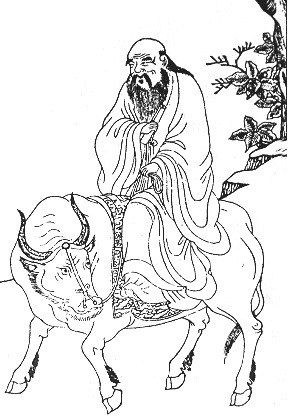Dr. Jonathan Y. Tan
(
陳運佳教授
)
ProfessorJTan@gmail.com
(513) 745-3794
329 Hinkle Hall
Office hours by appointment
|
FALL SEMESTER 2007
Tue & Thu 10:00-11:15 p.m. (Honors Villa 1)
http://site.xavier.edu/tan/359/
This course fulfills the following requirements:
(1) an elective in the Gender & Diversity Studies Minor,
(2) a 300-level elective within the Undergraduate Core Curriculum for Theology.
This course introduces students to the two major indigenous religious traditions of China: Confucianism and Daoism. Originating from the Warring States period in China's history (403-221 B.C.E.), Confucianism and Daoism provide many of the foundational assumptions about humanity and the world within Chinese, Japanese, Korean and Vietnamese cultures. The class will learn about these two great traditions through their religious texts, thinkers, doctrines, ethics, rituals, history, and social movements.
|
子曰:「學而不思則罔,思而不學則殆。」
The Master [Confucius] says:
"Learning without thinking is a waste of time,
Thinking without learning is dangerous" (Analects 2:15).
|

COPYRIGHT COMPLIANCE:
STATEMENT OF FAIR USE FOR EDUCATIONAL PURPOSES
A good faith effort has been made to comply with US copyright law. This does not
mean that none of the materials used in this course website is copyright protected, but that the "fair use" clause of
US Copyright Law has been adhered to. In particular, any copyright material used here is (a) not used for commercial gain and
used exclusively for educational purposes; and (b) used in limited amounts in comparison
to the published source. The relevant provision (section 107) of the U.S. Copyright Act is reproduced below:
Section 107: Limitations on exclusive rights: Fair Use
Notwithstanding the provisions of section 106, the fair use of a copyrighted
work, including such use by reproduction in copies or phone records or by any other means
specified by that section, for purposes such as criticism, comment, news reporting,
teaching (including multiple copies for classroom use), scholarship, or research, is not
an infringement of copyright. In determining whether the use made of a work in any
particular case is a fair use, the factors to be considered shall include:
(1) The purpose and character of the use, including whether such use is of a
commercial nature or is for nonprofit educational purposes;
(2) the nature of the copyrighted work;
(3) the amount and substantiality of the portion used in relation to the copyrighted
work as a whole; and
(4) the effect of the use upon the potential market for or value of the copyrighted
work. (added pub. l 94-553, Title I, 101, Oct 19, 1976, 90 Stat 2546).
|
|
REQUIRED
TEXTBOOKS:
Wing-tsit Chan
Sourcebook in
Chinese Philosophy
(Princeton, 1963)
Herbert Fingarette
Confucius: The
Secular as Sacred
(Waveland, 1998)
Eva Wong
Shambhala Guide
to Taoism
(Shambhala, 1997)
Livia Kohn
Daoism and
Culture Culture
(Three Pines Press,
2004)
|

















 This website is optimized for Mozilla Firefox. Get Firefox today.
This website is optimized for Mozilla Firefox. Get Firefox today.